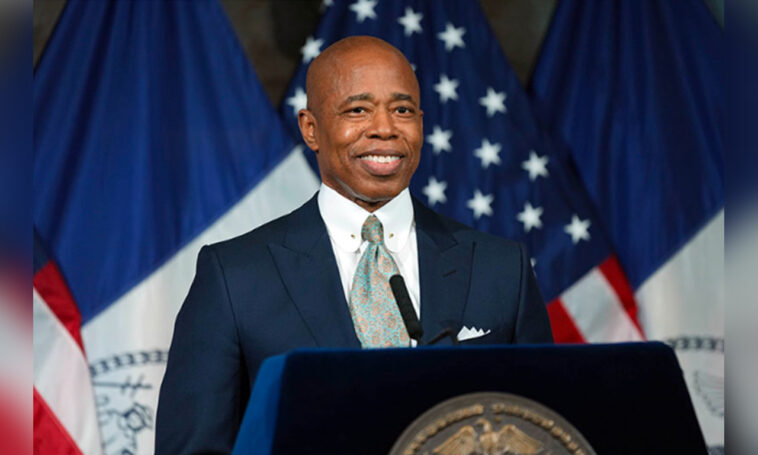A recent poll reveals that most New York City residents want Mayor Eric Adams to resign following federal bribery charges.
Most residents of New York City want Mayor Eric Adams to resign after his recent federal indictment on bribery charges. A new Marist Poll indicates that 69% of New Yorkers believe Adams should step down. Additionally, 63% of residents say that if he does not resign, Governor Kathy Hochul should initiate the process to remove him from office.
The mayor faced questions regarding the poll during a press conference.
He responded by saying, “We have not fully been able to tell our side of the conversation. Anytime you see what happened last week, there’s going to be a natural reaction. I’ve been in the city a long time. So let the process play out, let New Yorkers see our response to this whole matter.”
Adams emphasized the importance of allowing the legal process to unfold.
Last week, Adams pleaded not guilty to several federal charges, including bribery and conspiracy. He allegedly solicited campaign contributions from foreign nationals and participated in lavish trips in exchange for political favors. Federal prosecutors claim that his alleged wrongdoing dates back nearly a decade.
Adams has consistently maintained his innocence, stating, “Once they see both sides of the issue, you’re going to see what I’ve stated over and over again, that I did nothing wrong.” He insists he can still effectively lead the city while navigating the legal challenges ahead.

Despite his claims of innocence, the legal battle is far from over. During a recent status conference, federal prosecutors indicated that it is “quite likely” they will file a superseding indictment. This could include additional charges against Adams and other defendants. Both the prosecution and defense have requested that the trial begin in the spring.
While Adams remains defiant, the possibility of his removal from office looms. Governor Hochul has the authority to initiate his removal. If that occurs, New York City Public Advocate Jumaane Williams would step in temporarily and have 80 days to call for a special election to fill the mayoral position.
“The goal is to keep moving the city forward. The governor has been a great chief executive of the state,” Adams stated, attempting to redirect focus from his legal troubles to the city’s ongoing governance.
In the midst of this turmoil, there are reports that First Deputy Mayor Sheena Wright will resign. Her departure marks a continuation of the wave of exits from the Adams administration. Wright’s resignation comes shortly after both her and her husband, Schools Chancellor David Banks, had their phones seized by federal investigators. Banks has also announced his plan to retire at the end of the year, with his last day being October 16.
When asked about Wright’s resignation, Adams noted, “What’s important to me is that those who are here, like my four deputy mayors, they’re able to carry out their portfolio. And that’s what they’re doing.” His comments suggest a desire to maintain stability within his administration, despite the growing number of departures.
Additionally, NYPD Commissioner Edward Caban resigned earlier in September following a raid by federal agents. The combination of these events raises questions about the overall stability of Adams’s leadership and the future of his administration.
As public sentiment continues to turn against him, Adams must navigate a complicated landscape. The combination of legal issues, public opinion, and administrative turnover creates significant challenges for the mayor. Many New Yorkers are calling for accountability, and the results of the Marist Poll reflect a widespread dissatisfaction with the current leadership.
The future of Eric Adams as mayor hangs in the balance. The legal proceedings will undoubtedly play a crucial role in determining his political fate. The actions of Governor Hochul could also influence the mayor’s ability to remain in office. New Yorkers are watching closely to see how this situation unfolds.
As the city grapples with these pressing issues, the conversation about leadership, accountability, and governance remains at the forefront. The ongoing developments in this story are likely to shape not only the future of Eric Adams but also the political landscape of New York City for years to come.
In this challenging environment, one thing is clear: New Yorkers are demanding a response from their leaders. As pressure mounts for change, the actions taken by both Adams and Hochul will be scrutinized in the coming days and weeks.






Join the Community and Be a Part of the Conversation
You must be logged in or registered to post a comment.